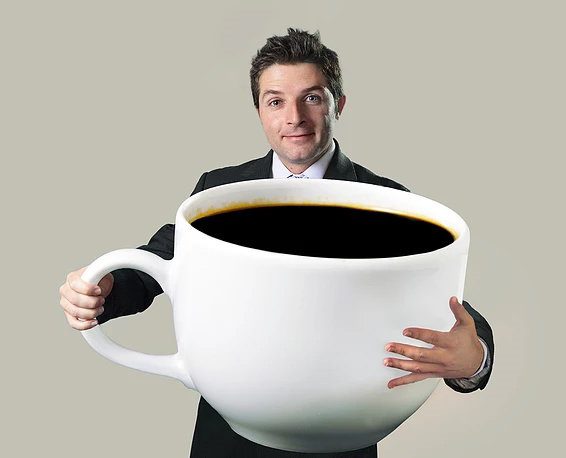
Many of us can not start our day without a piping hot cup of tea or coffee, or when feeling tired we tend to grab an energy drink, after which we feel fresh and energetic.
Let’s try to understand what is the reason behind this kick. Actually this feeling is caused by caffeine – a natural stimulant that stimulates the brain and nervous system to stay alert and prevent tiredness.
Caffeine is found in tea leaves, coffee beans and cacao seeds. It's very important to know how much quantity of caffeine is available in various products such as coffee, tea, cola drinks and chocolates so that, you can benefit rather than health issues.
Now let’s look into the different types of caffeine rich food in our day to day life:
It’s a brewed drink made from roasted coffee beans, and berries of certain species of coffee. Coffee contains riboflavin (B2), niacin (B3), magnesium, potassium and many antioxidants.

Decaf stands for decaffeinated. These coffees are made by removing around 97% of caffeine from the coffee beans while processing. This is a good option for people who wants to limit their caffeine intake.
About 88% of the total Indian population consume at least one cup of tea in a day. Let’s compare different types of tea to understand the caffeine quantity:

Chamomile, Peppermint and Dandelion tea come under category of Herbal Tea. These products are caffeine free because, these are either dried flowers, leaves, seeds or root of caffeine free plants.
One of the best options for the late night relaxation without disturbing sleep pattern after tea.
Cacao and cocoa are both from the cacao plant. Cacao is made by cold pressing the unroasted cacao beans. Whereas cocoa powder is made by high temperature roasted cacao beans, which is highly processed.
Both cacao powder and cocoa are used in making chocolates and chocolate-based products.

Caffeinated drinks are the beverages that contain caffeine. Many caffeinated drinks such as soft drinks and energy drinks are available in market.

1 to 3 mg caffeine per kg body weight is considered safe for adults. Such moderate dosages can be found in everyday amounts of coffee, tea, cold drinks, chocolates and some sports products (e.g., gels).
For example, 60-80 mg of caffeine is supplied by a small cup of espresso coffee or 400 ml of a cola drink.
Excess intake of caffeine (e.g. 9 mg per kg body weight) can result in side effects like jitteriness, nervousness, insomnia, headache, dizziness, and gastrointestinal distress, which can obviously have a detrimental effect on day to day activities.
If you have any questions related to healthy nutrition or weight loss, please schedule an online appointment with the best dietitian in bangalore Silky Mahajan.
For inquiries, please feel free to email us at info@foodsandnutrition.in or call us at 7829999400 between 10:00 AM IST - 7:00 PM IST (Mon - Sat).
